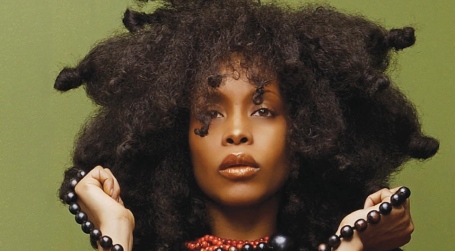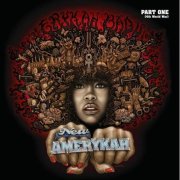 With the temperature dropping, it's time to find someone to keep you warm. Find your hookups with our online dating guide!
With the temperature dropping, it's time to find someone to keep you warm. Find your hookups with our online dating guide!
New AmErykah Part One
- R&B
- 2008
- Buy the CD
Reviewed by Jeff Giles
()
Of course, the fact that 4th World War is part of a whole makes it difficult to judge on its own merits – but what the hell, that’s the way Badu released it, so we’ll just do what we can.
You’d expect an album that makes this many promises to be as interesting behind the scenes as it is between the ears, and 4th World War does not disappoint: Badu has assembled a wild patchwork quilt of collaborators for these tracks, including jazz vibraphone legend Roy Ayers, in-demand hip-hop producer/recording artist Madlib, and longtime cohorts such as Karriem Riggins and Amir “?uestlove” Thompson. It’s an eclectic record, in other words, one that draws on a wide variety of R&B, soul, and hip-hop influences and traditions. It should also go without saying that the album is sort of a mess – an occasionally brilliant mess, but a mess all the same.

Unlike a lot of modern albums – in any genre – AmErykah actually rolls uphill; Badu seems to have frontloaded the track listing with some of the more impenetrable cuts. In fact, listening to the leadoff track, the Ayers-produced “AmErykahn Promise,” you might worry that you’re in for a long session of quirky “characters” and between-song skits; thankfully, this turns out not to be the case. In fact, at 10 songs (plus the hidden track/leadoff single, “Honey”), AmErykah balances its unwieldiness with economy – as much as you might have to struggle to get your head around what’s going on between the grooves, Badu had the good sense to keep the album trimmed down to a manageable size. The whole thing is done in under an hour.
And what an hour it is. Anyone who wants to think of Badu as kooky will find no shortage of additional reasons for doing so while listening to the minor-key doodling that bogs down chunks of the record, but if you care to listen a little deeper, you’ll get some tantalizing glimpses at what could end up being one of the more impressive achievements in modern R&B – “My People,” “Soldier 7,” and “The Cell,” in particular, hearken back to classics like Marvin Gaye’s What’s Goin’ On. That’s strong praise, especially considering how inconsistent AmErykah really is, but when Badu lands her punches, they’re deeply felt. Taken on its own merits, the album will likely be too difficult for many listeners to bother connecting with – there’s a reason Universal has released the unlisted bonus track as the first single – but depending on what else she’s got up her sleeve, the series as a whole could very well go down as the biggest achievement of Erykah Badu’s career.
You can follow us on Twitter and Facebook for content updates. Also, sign up for our email list for weekly updates and check us out on Google+ as well.











